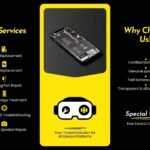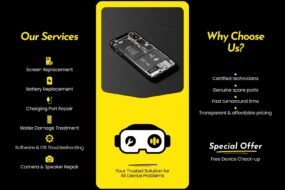
“Medtech is no longer just about scalpels, stents, and scanners. Artificial intelligence is muscling its way into the operating room, the lab, and even your wrist — and investors can’t get enough.”
In the past week alone, funding headlines from Crunchbase and MedTechDive have lit up with fresh capital pouring into AI-driven startups. From smarter medical imaging to robotic surgery tools and patient monitoring platforms, investors are signaling that healthcare technology is in the middle of a serious upgrade. For founders and clinicians, this isn’t background noise — it’s the start of a medtech AI wave that could define the next decade of diagnostics, treatment, and personalized medicine.
Why Medtech Is Entering a New Growth Phase
Medtech has always embraced emerging tools, but today’s wave of digital and data-driven innovation feels more like a structural reset than another trend.
- Founders: Funding momentum signals that AI-first solutions in imaging, surgery, and monitoring now have stronger product validation.
- Investors: Streamlined FDA pathways and clearer routes to commercialization are lowering risk and making medtech startups a safer bet.
- Clinicians: Smarter tools in diagnostics and continuous monitoring ease workloads and enable truly personalized medicine.
This is why medtech is emerging as the convergence hub for artificial intelligence, healthcare technology, and machine learning — a genuine inflection point for the industry.
3 AI Use Cases Drawing Investor Attention
Smarter Medical Imaging and Diagnostics
AI is finally delivering in diagnostics: companies using machine learning / computer vision to speed up scan interpretation and improve detection accuracy are getting serious funding. For instance, Radiology AI firm Aidoc raised $150 million to scale models assisting physicians in radiology workflows. Another example is Better Medicine, which raised nearly €1 million to develop AI tools that help radiologists detect kidney cancer with high accuracy.
The catch?
FDA clearance and regulatory validation remain major hurdles: for many imaging tools, investor return depends on demonstrating safety and compliance.
Robotic Surgery and AI-Enabled Medical Devices
Startups in robotic surgery are stepping up: Method AI, for example, secured $20 million for its platform focused on tumour visualization in robotic oncology. Elsewhere, ForSight Robotics raised $125 million to advance its cataract surgery robotic platform, preparing for first-in-human trials.
These devices embed AI for precision and often promise scalability — yet they also demand heavy investment in validation, clinical trials, and demonstrating reimbursement pathways.
Patient Monitoring and Personalized Medicine
Continuous monitoring via wearables and AI systems is rapidly moving from concept to clinical reality. Investors are watching because these tools enable early intervention, tailored treatment, and cost savings over time. One smaller but telling sign: Outcomes4Me (a mobile symptom tracking / coaching platform) recently closed a $21 million Series B to expand its AI‐driven personalized care offerings.
Another growth vector: digital platforms coupling monitoring + personalized medicine to manage chronic disease, rather than episodic care.
Expert Reactions & Industry Buzz
Not everyone is drinking the Kool-Aid blindly — but there’s no denying the excitement.
On the investor side, Julie Yoo, General Partner at Andreessen Horowitz, recently noted that healthcare AI is shifting from “demo-ware” into “deployment-ware,” meaning products that are not just impressive on slides but actually used in clinics.
Clinicians are a bit more measured. Radiologist Dr. Matthew Lungren, now at Microsoft Health Futures, put it bluntly: “AI is fantastic at pattern recognition, but it has to integrate into messy, real-world workflows before it truly helps patients.”
Meanwhile, on LinkedIn, investor posts about the latest medtech AI rounds are drawing enthusiastic commentary from founders — often highlighting speed to FDA clearance as a competitive edge. On X (formerly Twitter), the tone is split: one viral post joked, “Every new AI medtech pitch deck: Step 1, raise $50M. Step 2, get FDA clearance. Step 3, ???” while others emphasized the real clinical promise of AI-enabled diagnostics and patient monitoring.
The split reaction says it all: AI in medtech is hyped, but investors and clinicians alike are increasingly focused on execution — not just ambition.
What’s Next for AI in Medtech?
The momentum isn’t slowing — if anything, the next 12–18 months could be even more defining for AI-driven medtech. Expect both bigger checks and tougher hurdles.
Predictions:
- Investors double down on imaging, surgery, and patient monitoring.
- Regulators get faster at reviewing AI-enabled devices.
- Big medtech players buy startups to accelerate adoption.
Risks:
- Regulatory delays could stall innovation.
- Trial bottlenecks slow growth and raise costs.
- Slow exits drain investor interest.
Key Takeaways
- Founders: Plan around FDA approval and show outcomes fast.
- Investors: Back startups with regulatory traction and strong data.
- Clinicians: Lean into machine learning to stay ahead in diagnostics and personalized care.
Medtech isn’t dabbling anymore — it’s hitting a tipping point. The next wave of funding rounds and approvals will separate the hype from the breakthroughs. We’ll be tracking the wins, stumbles, and case studies shaping where healthcare technology goes next.











No Comments